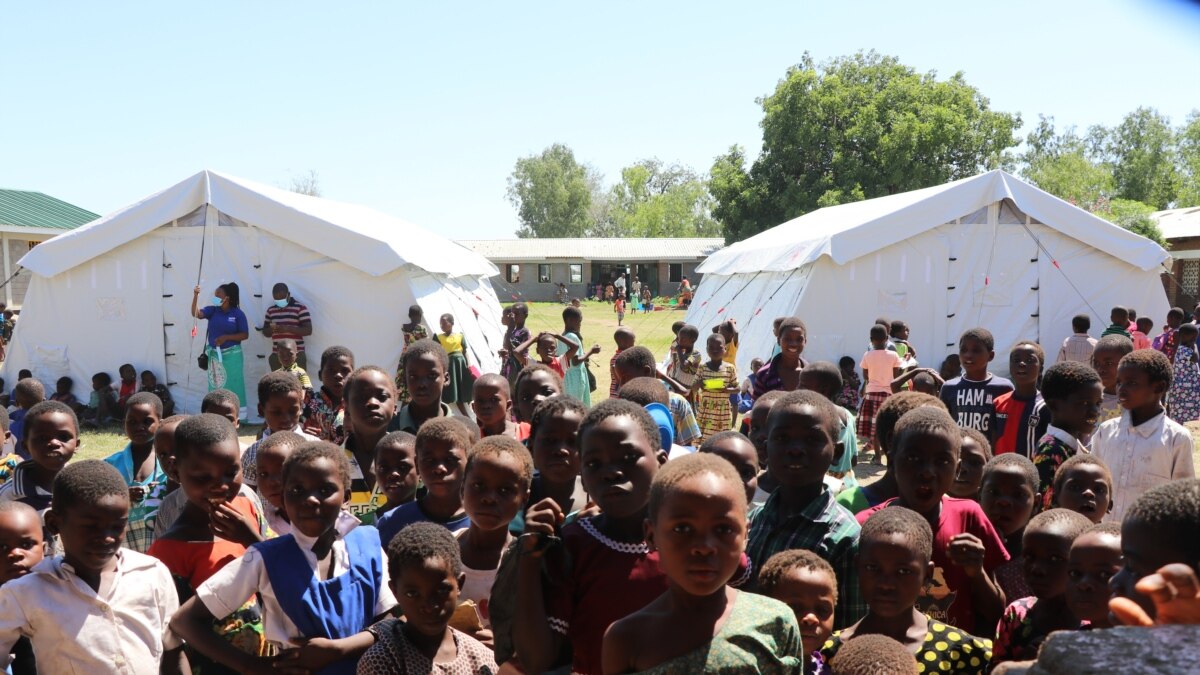On Sunday in Malawi, the country launched a polio vaccination campaign after confirming the first case in February. This is 30 years after the illness was eradicated.
UNICEF, the World Health Organization, and other partners of the Global Polio Eradication Initiative are leading the campaign, targeting more than 20 million children in Malawi, Zambia, Mozambique and Tanzania by July.
Vaccine deployment took place last month after a 3-year-old girl was confirmed paralyzed by the wild poliovirus in Lilongwe, the capital of Malawi.
Malawi was the last to report a case of polio in 1992 until February. A country in southern Africa was declared polio-free in 2005, 15 years before the entire continent became the same.
UNICEF says it plans to vaccinate more than 9 million children in the first round of a large-scale campaign in Tanzania, Zambia, Mozambique and Malawi.
UNICEF said herd immunity would also target previously vaccinated children.
Rudolf Schwenk, representative of Malawi of UNICEF, said, “To be fully vaccinated against polio, multiple vaccinations with polio are required, and each additional vaccination enhances the protection of children. Children who have been vaccinated before need to be vaccinated. ”
According to Schwenck, if there are children who are not immunized during the campaign, the risk of polio remains from Monday not only in Malawi but also in neighboring countries.
So far, UNICEF has procured more than 36 million polio vaccines for the first two immunizations of children in Malawi, Mozambique, Tanzania and Zambia.
In Malawi, the United Nations Children’s Fund has given 6.8 million polio vaccines for the first two vaccinations in March and April, targeting 2.9 million children.
Three more vaccinations will be given within the next few months, targeting a total of more than 20 million children from four eligible African countries.
However, in Malawi, some health professionals are afraid that immunization campaigns will encounter vaccine resistance, as is the case with the COVID-19 vaccine in Malawi.
But UNICEF says efforts have already been made to increase the acceptance and demand for polio vaccines between parents and the community.
“So we work with religious leaders, government officials, talk to local leaders, discuss sensitization with partners, and help understand the importance of vaccination of children. “It was,” Schwenck said.
He also says they distributed information, education and communication materials throughout Malawi and broadcast radio messages about the benefits of the polio vaccine.
Dr. Mike Chisema, manager of the Expanded Program on Immunization Program at the Ministry of Health of Malawi, told journalists Thursday that the government is ready for a polio vaccination campaign despite a shortage of health workers.
“Human resources issues are still a challenge. It’s not just this particular outbreak response program, but the most important thing to keep in mind is that we have an available team. Our health to do this all the time. Surveillance Assistant. But it’s a matter of adding numbers over time. But we strive to manage with the people available in the field. “
In a statement released on Sunday, UNICEF said it worked with the World Health Organization to train healthcare workers in all countries receiving polio vaccines.
In Malawi, we trained 13,500 health workers and volunteers, and 34 district health promoters. While in Tanzania, Mozambique and Zambia, they trained a total of about 3,000 health care workers.




